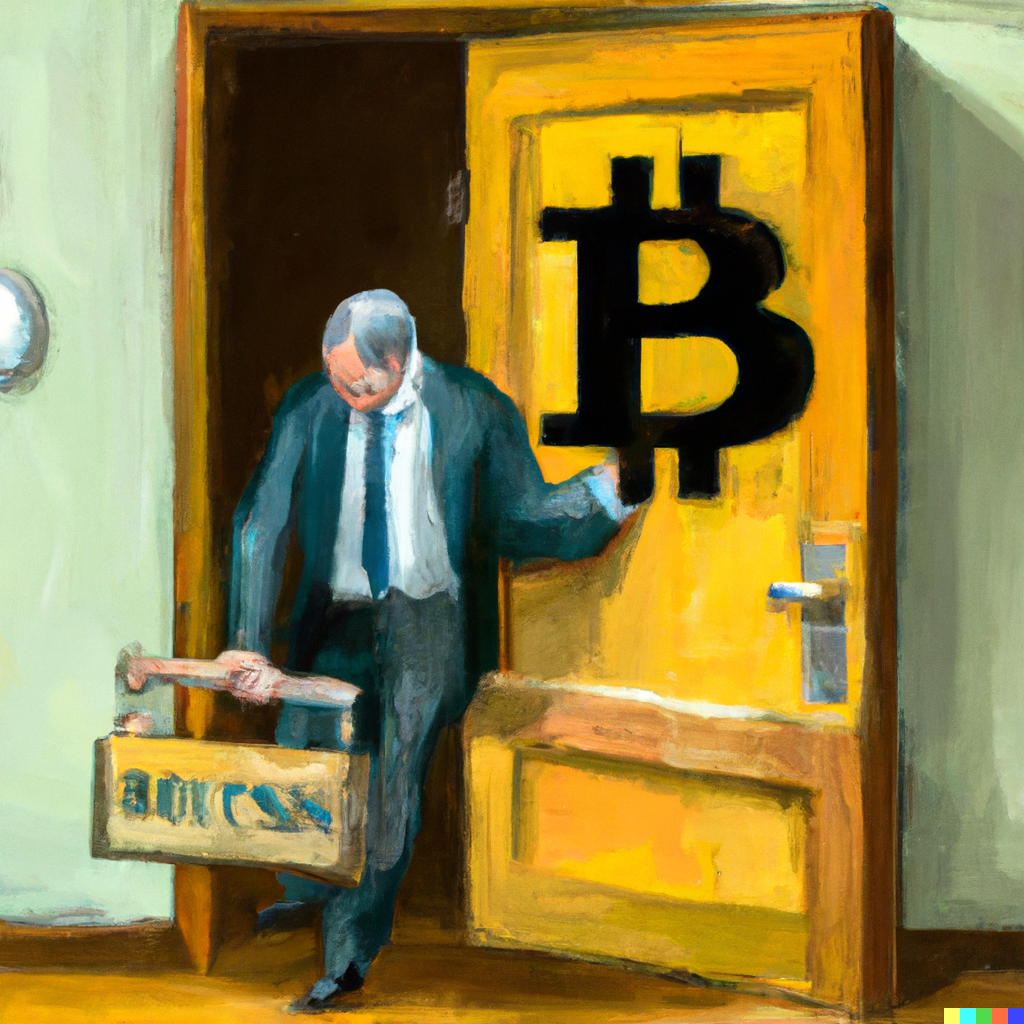The Bitcoin ETF is Still Not in the Clear

This past Monday, the cryptocurrency world was buzzing with news that the U.S. Securities and Exchange Commission (SEC) had approved Blackrock’s Ishares spot bitcoin exchange-traded fund (ETF). The unverified announcement was made by Cointelegraph, a popular cryptocurrency-focused news platform, and sent Bitcoin’s price soaring against the U.S. dollar. However, the news turned out to be inaccurate, causing confusion and frustration amongst the crypto community. In this blog post, we’ll delve deeper into the topic of Bitcoin ETFs and explore why the recent report is not quite the breakthrough it seems.
Firstly, let's clarify what a Bitcoin ETF is. Essentially, it's an investment product that tracks the price of Bitcoin. Investors can buy and sell shares in the ETF, similar to how they buy and sell stocks. The difference here is that they are investing in Bitcoin indirectly, allowing them to avoid the risks of storing and securing Bitcoin themselves. The idea of a Bitcoin ETF has been floating around for several years now, but the SEC has been hesitant to approve them due to concerns around market manipulation and investor protection.
So, what happened with Blackrock and the supposed approval of their Ishares spot bitcoin ETF? The news led to a surge in Bitcoin’s price, as investors speculated that the approval would open the floodgates for more institutional investment in Bitcoin. However, this excitement was short-lived when Blackrock came out to deny the claims, revealing that no such approval had been granted. This is not the first time that false information has caused a stir in the crypto world, highlighting the importance of verifying news sources before making any investment decisions.
It’s worth noting that the SEC may well approve a Bitcoin ETF in the future, but it’s important to understand why the decision has not been an easy one. One of the main concerns is the risk of market manipulation. Since Bitcoin’s price is not regulated by a central authority, it’s possible for individuals or organizations to distort the price by artificially inflating or deflating it. This could negatively impact retail investors who may not have the resources or knowledge to protect themselves.
Another factor to consider is investor protection. Bitcoin is a highly volatile asset and therefore poses a significant risk to investors. If a Bitcoin ETF were to be approved, the SEC would need to ensure that adequate safeguards are in place to protect investors from suffering significant losses. This includes requirements around custody arrangements, transparency of trading activity, and disclosure of risks.
The recent news about Blackrock's supposed approval of a Bitcoin ETF highlights the ongoing debate around the viability of such products. While the excitement around institutional investment in Bitcoin is understandable, it’s important to recognize that approval is not guaranteed and that significant regulatory hurdles still need to be addressed. Investors should always be diligent in verifying news sources and considering all factors before making investment decisions. As the Bitcoin market continues to evolve, it remains to be seen whether a Bitcoin ETF will ultimately be approved, but for now, it seems that we’re not quite there yet.
